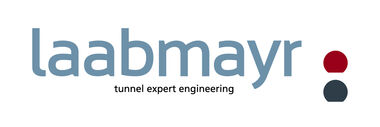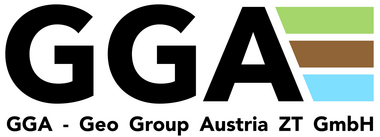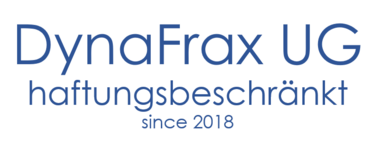Visado para Austria (Schengen)
Aquí encontrará toda la información necesaria sobre su solicitud de visado:
Nota: Esta información sólo está disponible en inglés

























Challenges in Rock Mechanics and Rock Engineering
09. - 14. de Octubre 2023
Here you can request your invitation letter.
Please fill it out and send it to our secretariat: office@isrm2023.com
Citizens of EU member states, European Economic Area (EEA) and Switzerland do not need a visa for entering the Republic of Austria.
Nationals of other countries might require a visa in order to enter the Schengen Area or the Austrian territory.
Please check the information on whether you require a visa or not on the website of the Federal Ministry of the Interior.
Foreigners who are not nationals of an EEA state or Switzerland and who wish to pursue gainful employment or a short-term activity similar to gainful employment (e.g. internship) always require a visa (see also “Temporary work visa”).
Nationals of those states for which the visa requirement has been lifted by means of an EU regulation are entitled to visa-free entry to Austria for a maximum of 90 days per 180 days in case of no gainful employment.
The Schengen visa C is intended for touristic, business or visiting purposes (without gainful employment) for a maximum stay of 90 days per 180 days.
If a stay of more than 90 days is planned, you should apply for a visa D, which entitles the holder to stay in Austria up to six months.
Each application for a visa is subject to a case-by-case examination by the competent Consulate.
Holders of a Schengen visa are in principle entitled to enter and stay in the Schengen States presumed that the requirements of Art. 6 Schengen Borders Code are fulfilled and the visa is not subject to territorial restrictions.
The Schengen States are:
There are special provisions for family members of EEA citizens and Swiss citizens entitled to freedom of movement. Please find the respective information under the following link.
The visa requirements for Schengen visa are laid down in the EU Visa Code, the provisions for visa D are laid down in the Aliens’ Police Act (FPG). The competent Consulate examines the visa applications if the conditions for issuing a visa are fulfilled. The competent Consulate decides on each application individually, taking into account all the circumstances of the individual case.
There is no legal entitlement to a visa.
A visa application is admissible if:
Once admissibility has been established, the Consulate examines the visa application and the following conditions for issuing a visa must be positively established for each individual visa applicant:
If it is not possible to prove financing by funds from one’s own assets, financial resources can be proven by an electronic declaration of sponsorship submitted by a person residing in Austria. Please visit the website of the Federal Ministry of the Interior for further information on the possibility of submitting a declaration of sponsorship.
Persons whose entry into Austria and the Schengen area would endanger security or public order or who do not fulfil one or more of the above-mentioned requirements, a visa will not be granted.
Applicants, whose visa application were refused, can file a legal remedy at the competent Consulate (“Vorstellung”) respectively submit an appeal to the Federal Administrative Court. Please read the information on the appeal procedure on the refusal form. For further information visit the website of the Federal Administrative Court.
As a general rule, the Consulate of the Schengen State in which the sole or main destination is located is competent for examining and deciding on an application for a Schengen visa. In case no main destination can be identified as visits to different Schengen States are planned, the Consulate of the Schengen State through whose external borders the applicant intends to enter the territory of the Schengen State is the competent Consulate for issuing a Schengen visa.
Visa for travels to Austria have to be applied for at the competent Austrian Consulate, which is placed in the country where the applicant legally resides.
In some countries, the Austrian Consulates also offer the possibility of submitting visa applications to an external service provider. For a service fee, the service provider receives applications and forwards them to the competent Austrian Consulate for examining and decision. An external service provider plays no role in the decision-making process itself!
If there is no Austrian Consulate in the applicant’s home country, a Schengen visa can also be applied for at a Schengen embassy representing Austria if one exists.
Where is a Schengen representation in place?
Please note that the representing Schengen embassies may not accept the “electronic declaration of sponsorship” submitted in Austria. The form in which a declaration of sponsorship is accepted by the representing Schengen embassies can be obtained from the competent Austrian Consulate or the representing Schengen embassy. Please note that if you apply to a Schengen embassy representing Austria, this embassy is exclusively responsible for the proceedings. An appeal against the decision also depends on the legal regulations of the respective representing Schengen State.
Visas D and visa for employment can only be applied for at the competent Austrian Consulate.
In general, supporting documents have to include a German translation at the request of the Consulate. When submitting English language documents, a translation into German is not required. Please contact the responsible Consulate directly to clarify the need for an appropriate translation of the documents into German.
In principle, the following supporting documents and information are necessary:
Business trips:
Airport transit:
Specific information on supporting documents, you can find on the Website of the competent Consulate.
A decision on the visa application can be taken only after payment of the visa fee and submission of all documents required by the Consulate.
Please note that for some nationalities prior consultation with other Schengen States is mandatory for processing the visa application. This consultation process can take up to seven calendar days. Consultations are currently required with nationals of the following states.
As a rule, the processing time of an admissible Schengen visa application should not exceed 15 calendar days. If further checks are necessary, the processing time may increase to 45 calendar days.
Examining and deciding on applications for visa D must not take longer than a maximum of 6 months.
Please note that due to the high volume of work and for reasons of data protection and file traceability, inquiries have to be submitted to the Consulate in writing. Your inquiry will be immediately forwarded to the responsible person and processed as soon as possible. Only the applicant or a person authorised by him/her is a party to the procedure and thus entitled to information. For data protection reasons, telephone information cannot go beyond general information.
Schengen Visa
Schengen-Visa € 80
Schengen visa for young people (between 6 and 12 years) € 40
For a Schengen visa, nationals subject to an EU visa facilitation agreement must pay the amount set out in the agreement (usually € 35) if they are not already exempt from fees under the agreement.
Fees are not required for the following:
General information:
The use of so-called visa agencies, which demand large sums of money to obtain visas, is explicitly warned against because their services are often linked to dubious practices.
Since there are often cases of fraud in connection with Internet acquaintances, transferring money to unknown persons is explicitly warned against. Any claims that a large amount of money is required in order to obtain a visa are false.
In case of doubt, please contact the Consulate.
